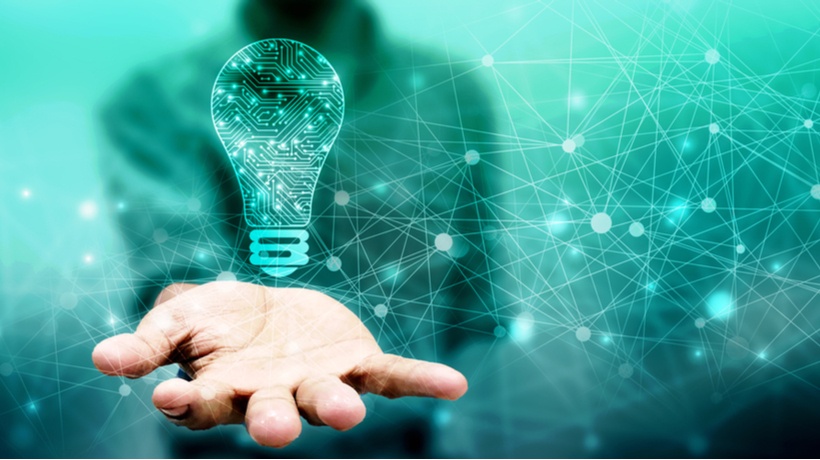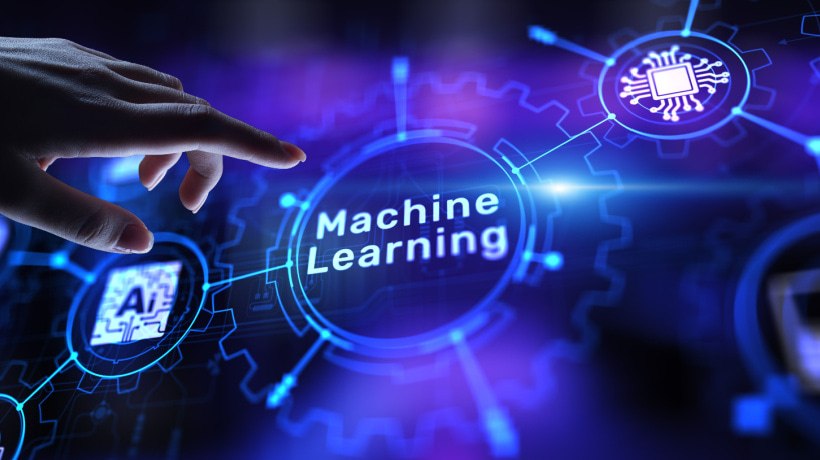Upgrading Degraded Information Systems
The systematic approach to universal literacy ushered in a standardized educational methodology that has been in effect for centuries. Despite effectively distributing resources and material to engage people with the search for methodic productivity, such systems have suppressed the engagement in activities for enjoyment, recreation, and exploratory analysis. According to research professor Peter Gray, Ph.D. (2008), "In the beginning, for hundreds of thousands of years, children educated themselves through self-directed play and exploration." Hence, schooling has been the systematic encouragement of forced labor for millennia.
Learning Beyond The 21st Century
Actually, for centuries, humankind has drifted away from learning’s essence because, by containing the infinite possibilities of knowing and understanding human value to a limited number of occupations, our species has often hindered its creativeness and divergent thinking capabilities. Now that cutting-edge technologies are displacing human roles in most of the conventional careers, we can comprehend the necessity of embracing individualized learning even more. Machines now endanger common functions and most occupations historically designed to satisfy social order systems. Also, these advancements have managed to mirage a fair knowledge distribution while transforming millenary socioeconomic interactions within decades, but ironically reversing them would disrupt the way populations interact, labor, and learn.
In fact, by achieving exponential computational power, global interconnectivity, and irreversible interdependence, emerging technologies have exposed the necessity of a new set of principles, as well as the demand for the reformulation of pedagogy in a universal capacity. Cheng and Townsend (2000) state, "Since the end of 1990s, there had been numerous education reforms initiated by policy-makers in different parts of the world with aims to meet the challenges from globalization, international competition, technological innovation, and economic transformation." Research states, "Without understanding the nature and dynamics of these dilemmas, many education reforms with good intentions may fail in implementation." Societies need to contemplate the new behaviors, skills, values, attitudes, and preferences through which their new structures are formulating, deploying, and managing instruction. In order to accurately establish new learning techniques in the current environment of global socioeconomic disruption, we as a whole species ought to incorporate the same technologies and trends into education and training. Evidently, these times call for the upgrading of the structural and methodological fundamentals of education, of objective stimuli, worldwide perception, and a human-centered plan with a vision beyond the 21st century.
Problems For The New Generations
Additionally, in order to impart knowledge in the current "age of exponential technologies," leaders and decision-makers within the education ecosystem ought to recognize new trends and developments that will alter the fate of this sector. Furthermore, every person involved should comprehend that emerging technologies are “capable of progressing at a pace with or exceeding Moore’s law” [that] “evidence a renaissance of innovation, invention, and discovery…[and] have the potential to positively affect billions of lives” (Deloitte, n.d.). Consequently, they would be introducing a plethora of alternatives to human creative learning culture, independence, and social responsibility, and opening up a whole world of possibilities not yet perceived by the human mind.
For example, data science is capable of discovering processes, checking compliances, analyzing bottlenecks, comparing process variants, and suggesting improvements with accuracy and pace (van der Aalst W., 2016). Accordingly, "Artificial Intelligence (AI) has proven it could marshal a vast amount of data, beyond anything any human could handle, and use it to teach itself how to predict an outcome" (Frontline, 2019). While computer science continues to venture into new subsectors of AI, like machine learning, deep learning, or reinforcement learning, its autonomy, accuracy, and speed are only bound to continue improving and excelling human cognitive abilities. At the same time, Virtual Reality and augmented environments allow information to be presented in real time and enhance teaching materials through a stimulating experience. Also, the advancements in networks and computing systems, robotics, and other exponential technologies only represent imminent change. Routing this change to make it an opportunity instead of a threat is as dependent on education systems as education systems are on disruptive trends. Utilizing the power of these exponential technologies in education will guide poorly developed areas to rapidly adopt modern systems without intermediary steps. Education should accomplish a leapfrog outcome that pursues the benefits of human-machine interactivity and not be detrimentally affected by automation.
The design and arrangement of the resources that will be utilized in the next era of schooling should consider potential problems for the sector and notice the multiple issues ahead. For instance, human dependency on social networks that impose a fundamentally illegitimate choice of having to select between utilizing digital services that track, parse, mine, and often modify their own digital embodiment, and a disconnected reality inclined toward discretion and the loss of belonging (Zuboff, S., 2019).
Besides, the spurious correlation between the update of platforms for the benefit of their users, and a new reality fabrication led by "thinking" computers’ recommendations, misguide public sentiment. In point of fact, fake news evolution through "deepfakes" not only augments the impact of these recommendations but also opens up more space for propaganda that shapes beliefs and identity and welcomes the supreme and absolute power of those controlling AI (the new wisdom). Therewithal, the immediate need for a new course of action is indisputable. New comprehensive guidelines are imperative for the first time in centuries.
You As A Service: A New Frontier For Education Policy
Overcoming these obstacles depends on policymakers’ ability to formulate proposals that not only consider the methodological framing and outline of the systems unfolding but also a concise forecast of the forthcoming events. The future is the only direction for our path. Designing old methods for a new age is an error all should avoid. "In the past, education policy was seen as a reflection of particular historical, political, social, economic, and cultural configurations of a given country. Today, policy is increasingly understood as heavily influenced by extra-national forces, so much so that policies 'elsewhere' are seen as possible reform options" (Silova I., Rappleye J., Auld E., 2020).
In that event, the engineering of a new and improved education system, or systems, will lead to the demand for a new social structure that may identify better ways of coping with the disruption caused by emerging technologies. In that sense, education for the next centuries should focus on the livelihood of future generations, acknowledging the edge of new communal variations. Historical components of learning standardization, such as social divide, economic influence, controlled limits of rule, and restricted channels of information, among others, shall not be at the core of contemporary policy. Instead, the proficiency with which exponential technologies process, model, and distribute data serves as a vehicle for inclusion, equity, equality, fairness, and optimization. In addition, automation’s power for the systematic extraction of information, decision-making, tireless performance, accuracy, and speed promises to enhance student-teacher exchange.
Fundamentally, education technologies are usually centrally hosted, and AI adds a real-time element of improvement. Users could serve as a common delivery model for multiple digital applications. In layman’s terms, education technology (EdTech) puts the students in the center of learning material execution for global distribution, while training AI models and improving their performance. The new epoch encourages the new education function of machines learning from learning machines and establishes a new frontier for education policy.
Applying The Properties Of STEM, Play, And Exploration
In view of this fact, to facilitate learning going forward, the architecture of advanced models of detailed information should deploy the use of a language that is by no means subject to interpretation. The employment of a universal structure of communication constitutes the basis of an impartial system.
Gathering all the qualities needed to ensure such a language, science, technology, engineering, and mathematics education (STEM) is a clear path to strategic social progress. Even more, STEM applications occupy an essential position in the formulation of humanity’s future. But, educators’ "low confidence about their discipline-specific content knowledge can be related to decreased confidence in their ability to teach said content, or even reluctance to attend professional development in that area" (NAE & NSF, 2014). Thus, in order to assure a remedy to possible shortcomings, leaders in the space are obliged to handle a fragmented understanding of the significance of STEM education at every level of the sector.
In fact, STEM education allows for exploratory and recreational teaching to be resumed, potentially guiding new evolutionary routes of opportunity. An interdisciplinary approach to the systematic study of the structure and behavior of the physical, natural, mechanical, technical, and abstract world could motivate learning based upon the abilities and interests of each learner, thus structuring the conditional control statements of new education.
Building Exponential EdTech: Intelligent Learning For A New Age
Equally important, skills allocation has gained more significance as AI replaces "repetitive" jobs. But, rather than fearing the loss of these jobs to the machine, societies could identify better production routes to minimize the economic impact of automation. Perhaps through exponential education technology, society could consider the complete displacement of human jobs for more practical use of human skills, or break new ground and decelerate otiose activities. Creating inference methods that model AI to facilitate the amplification of human intellectual growth might even accelerate both human and machine learning.
Either way, as stated by Bridgewater hedge-fund billionaire Ray Dalio, "We’re headed for a world where you’re either going to be able to write algorithms…or be replaced by algorithms." So, the best chance of purposely bringing value to civilization, through human cognition, is to develop AI models that mimic essential aspects of the true meaning of education. For instance, systematic exponential education technology must aim to help individuals' understanding of civilization and their role as civilians in the new digital world. Further, it must take notice of the factors that determine the best quality of education in an evolving world.
- Is it accessible?
The mission to make products work better for everyone took center stage in the past century. Making it easy for people to access and stream online material became more relevant since the World Wide Web's invention. Likewise, learning has reached a similar status through Massive Open Online Courses (MOOCs). Hence, medium accessibility should become a global standard in the next decade. - Is it accurate?
However, accessibility also makes information in a networked world challenging to verify. Concurrently, the post-truth era has challenged traditional ways of teaching journalism and media literacy (Friesem, Y., 2019), adding a layer of uncertainty to the products of cyberspace. Deconstructing information disorder in the post-truth era is essential. Looking at economics, ideology, and power relations, and enhancing digital and media literacy skills, by inquiring about the accuracy of a variety of sources centered on a single story will allow the policy to satisfy its objectives. - Is it adaptable?
A global poll conducted by Gallup has uncovered that out of the world's one billion full-time workers, only 15% of people are engaged at work. That means that an astronomical 85% of people are unhappy in their jobs (Clifton, J., 2017). Education must adapt to the changing world in search of alternatives, not to job loss, but to current and post-crisis individual capacity development. - Is it continuous?
In computing and consumer electronics, an upgrade is generally hardware, software, or firmware replacement with a newer or better version in order to bring the system up to date or to improve its characteristics (Marini, P., 2015). This process of replacing a product with a newer version of the same product is standard nowadays. Correspondingly, learning material must be regularly updated going forward. - Is it customizable?
Like individualized education programs developed for special education, customizable learning could serve as a crucial opportunity for developing and implementing meaningful educational experiences for students of the new digital world. Hence, infrastructure, software, and modification to suit individual interests will gain strength within the next decades. - Is it distributed?
The multi-channel digital information world has increased the opportunity to distribute information with ease and speed. Technical systems are being brought into being and made operational by certain kinds of actors and organizations, and are imbued with the aim of shaping the actions of human actors distributed across education systems and institutions (Williamson, 2015). - Is it proactive?
Establishing a strategy for the implementation of proactive management in the available environment is imperative in the age of Artificial Intelligence. As previously mentioned, the training of new intelligent agents requires education systems to proactively distribute knowledge and satisfy the continuous need for updating. However, a proactive environment will ensure that the ever-changing world of machine learning fits the parameters of modern societies. Exponential EdTech shall drive innovation, creativity, and methodical problem-solving techniques for the improvement of modern-day scenarios. - Is it relevant?
Education relevance could be described as the perception that something is interesting and worth knowing (Roberson, R., 2015) Modern-day teachers must understand the materials that provide relevance, and apply new techniques and methods, centered on exponential technologies, to perceive comprehension and interest in students. - Is it reliable?
The convenience of interconnectedness grants access to a remarkable amount of data that could be used to educate. However, the lack of a filtering authority can represent a threat to education systems. AI enhances the properties of data processing and satisfies the need for a filtering agent, allowing teachers and students to verify the reliability of their material, if properly employed. - Is it trustworthy?
Lynch (2020) says, "Education leaders garner trust by letting their actions speak louder than their words. They outwork everyone else and help other leaders and educators grow and elevate their skills. When it is all said and done, everyone wins, especially the students. When students trust the leaders in their school, they will work hard to achieve academically and to meet behavioral expectations." Hence, expert systems supply a path to trustworthiness that, if implemented, could propel the biggest shift in education’s history.
Level Up The Emerging Convention
In the end, it is known that data becomes learning, learning turns into knowledge, and knowledge into wisdom. However, this process, involving as it does methods at the intersection of education and the current technological developments, requires a revision of the entire proceeding. But human processes in the new age of learning machines mainly depend on the unified effort of global leaders now. Even more important, in order to ensure this effort’s success, education, as the main source of progress, should involve the specifications of a new world, with a new set of rules, for a completely different purpose. Humanity, for the first time in history, pleads for co-existence. However, in order to achieve co-existence with other humans and the machine, the modernization of the mechanisms of imparting learning is indispensable and fundamental.
Perhaps the information technologies guiding the new generations to achieve a state of existence not only call for a new systematic approach to universal literacy but also your involvement and empowerment to level up the emerging convention. Be conscious of your importance, after all, you are training the machines that are upgrading degraded information systems.








